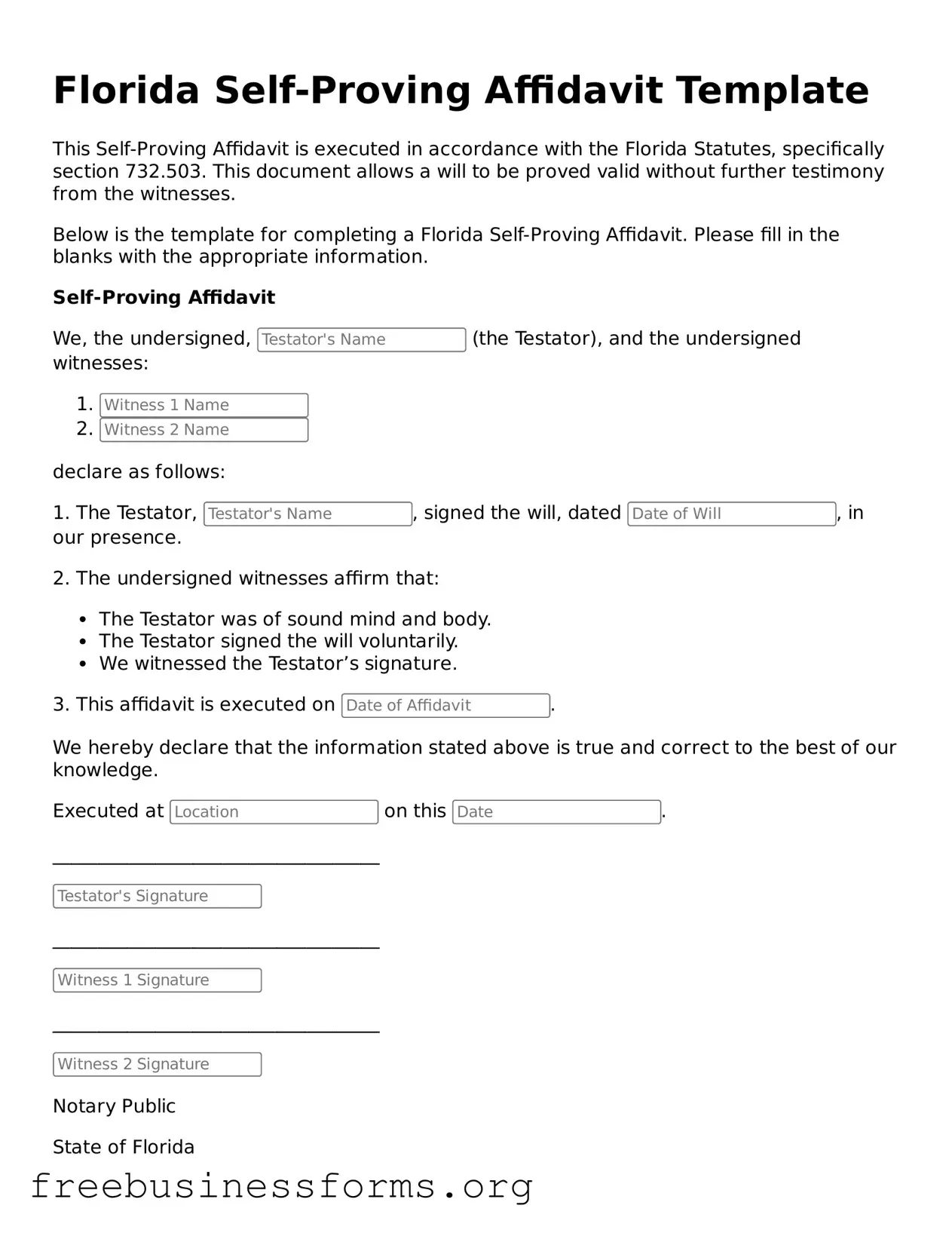Blank Self-Proving Affidavit Template for Florida
The Florida Self-Proving Affidavit is a legal document that simplifies the process of validating a will after a person's death. By allowing witnesses to affirm the will's authenticity at the time of signing, this form helps streamline probate proceedings. Understanding how this affidavit works can save time and reduce complications for loved ones during a difficult period.
Open Form Here

Blank Self-Proving Affidavit Template for Florida
Open Form Here

Open Form Here
or
↓ PDF File
Quickly complete this form online
Complete your Self-Proving Affidavit online quickly — edit, save, download.